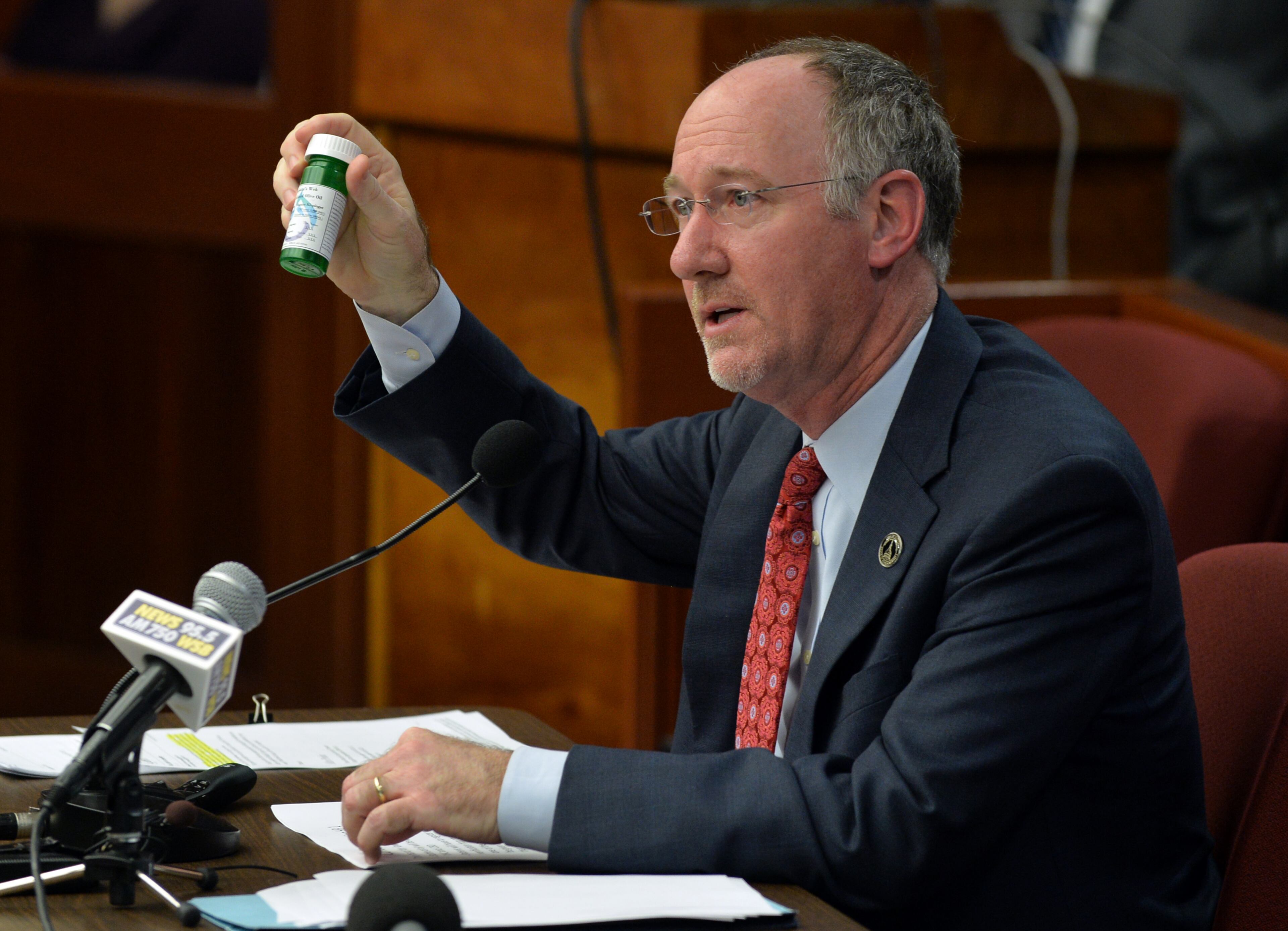Georgia tries to find way out of medical marijuana impasse

Jim Wages has waited years to be able to legally buy medical marijuana to help treat his daughter’s violent seizures.
They’ve found no relief, despite a state law passed three years ago that authorized six companies to sell cannabis oil to doctor-approved patients.
Georgia legislators are trying to break the bureaucratic deadlock of their own creation, with protests and legal threats by losing companies preventing license awards to the six winning companies.
“It’s definitely disheartening. We’ve been fighting years for this, and we still don’t have anything we can go into the store and buy,” said Wages, whose 18-year-old daughter, Sydney, suffers from Dravet syndrome, a rare form of epilepsy. “It’s just gotten to the point where we need to move forward with this thing.”
The Georgia General Assembly may vote Tuesday on bills that attempt to end the stalemate.
One proposal, Senate Bill 609, would give the go-ahead to issue licenses to six companies, despite ongoing protests from 16 companies who say the selection process was inherently flawed and unfair. Another measure, House Bill 1425, would throw out last year’s tentative awards and start over with a new competitive bidding process.
Neither of the bills comes with a guarantee that they would work. Any new law that short-circuits the ongoing licensing and protest process could be challenged in court, potentially resulting in further delays.
In the meantime, there’s still no way to legally purchase a medicine that Georgia patients have been allowed to use since 2015.
Over 20,000 registered patients with illnesses including severe seizures, Parkinson’s disease and terminal cancers are allowed to orally consume cannabis oil with no more than 5% THC, the compound that gives marijuana users a high.

“The people losing in this situation are the hurting Georgians who have a legal right to possess this product,” said Allen Peake, a former state representative who led the effort to pass the state’s original law that permitted patients to possess cannabis oil. “We have failed them.”
Peake worked with a company called Cannatol LLC, which wasn’t chosen for a license.
If the General Assembly doesn’t intervene, the licensing process could drag out for three years or more, attorney Esther Panitch said in testimony to a House committee.
Even after decisions on protests of bid awards, companies could still file lawsuits that would then crawl through the court system. Meanwhile, parents and sick children wouldn’t have any recourse.
The biggest loss for patients and their families “would be all the time spent without their kids getting helped,” Panitch said.
Problems and delays during the start-up of medical marijuana programs have been common in other states, said Karmen Hanson, director of the health program for the National Conference of State Legislatures. Thirty-seven states, including Georgia, have approved medical marijuana programs.
“There will nearly always be legal challenges when you have a limited number of licenses and there’s a scoring process involved that can be perceived as subjective,” Hanson said.
Protesting companies allege several problems in license awards.
Without funding to hire a company to grade 69 marijuana business proposals, similar plans received different scores when they were evaluated by various members of the Georgia Access to Medical Cannabis Commission, a body appointed by Gov. Brian Kemp and legislative leaders.
Companies were allowed to heavily redact their proposals, some of which were thousands of pages long, leaving their competitors and the public uncertain whether the process was fair.
A more consistent and transparent bidding process could have prevented so many protests, according to companies, patients and state legislators.
“Unfortunately, the process was riddled with flaws and lacks any form of transparency, leaving patients, families and competing companies in the dark,” said Matt Connelly, board chairman for Remedium Life Science of Georgia, one of the companies that didn’t receive a license. “We did not create the problem but are more than willing to work toward a solution.”
Critics of the protesting companies accuse them of holding up Georgia’s medical marijuana program, prolonging the suffering of patients who haven’t found adequate treatments from pharmaceutical medicines.
“The protests of the award of license to the six deserving companies are doing no good for the patients of Georgia,” Fine Fettle, a company selected for a license that operates dispensaries in Connecticut and Massachusetts, said in a statement. “We put together an incredible plan to bring important medication to the people of Georgia. All we want is to put that plan into action and start this important work.”
None of the other five companies chosen for a license responded to requests for comment. They are Botanical Sciences, Natures GA, TheraTrue Georgia, Treevana Remedy and Trulieve.
State Rep. Micah Gravley, a Republican from Douglasville, said Georgia patients can’t wait forever for the government to deliver.
“There’s no reason to keep oil out of the mouth of the people of Georgia simply because you weren’t picked,” Gravley said. “I don’t know anyone who’s not frustrated. I don’t know anyone who’s not ready to move the ball forward.”


